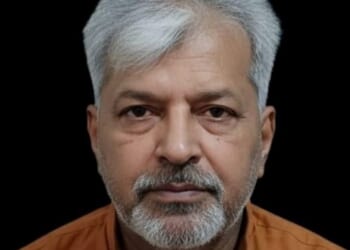Yesterday, the Supreme Court heard oral argument in Learning Resources v. Trump, the challenges to the Trump Administration’s “liberation day” tariffs. This is the first case in which the Supreme Court has heard oral argument on the merits of one of the Trump Administration’s second-term initiatives, and is of great economic and political importance. It is also a case which could go either way, for reasons I explained here and in the Wall Street Journal.
At yesterday’s oral argument, the justices were active and aggressive, posing challenging questions to all three of the advocates at argument. They showed significant skepticism of the government’s arguments, as put forward by Solicitor General John Sauer, but also posed difficult questions to the attorneys representing the private and state respondents.
Over all, I think more justices showed more skepticism of the government’s position, but the case remains difficult to call, as it represents a closer legal question than advocates on either side like to admit. It is also a case in which it may be difficult to rapidly produce a single rationale that commands at least five votes even if it appears that a majority of the Court is likely to vote against at least some of the liberation day tariffs.
I have a piece in The Dispatch with additional observations on the oral argument. It begins:
Solicitor General D. John Sauer opened his defense of the Trump administration’s “Liberation Day” tariffs as the president would have wanted. He quoted President Donald Trump’s insistence that the nation faces “country-killing” emergencies and emphasized the executive’s broad authority to impose tariffs to avert “an economic and security catastrophe” and “public health crisis.” But things went downhill for the president after the opening statement, as most of the justices seemed wary of Sauer’s sweeping claims.
At the core of the argument in Learning Resources Inc. v. Trump is whether Congress, in enacting the 1977 International Emergency Economic Powers Act (IEEPA), delegated to the president the near-unlimited authority to impose tariffs on trade with foreign nations any time the president is willing to claim an emergency requires it. Under IEEPA, the president is authorized to “regulate … importation … of … any property” from foreign nations in order to deal with “any unusual and extraordinary threat, which has its source in whole or substantial part outside the United States,” once the president declares the existence of a national emergency. This is an unquestionably broad foreign policy power. The question is whether it includes the authority to impose and set tariffs, and can be used to circumvent the procedures and constraints contained in those statutes expressly authorizing tariffs.
In addition to highlighting aspects of the argument that I found notable, I also raised the question of whether the Court will be concerned that the Solicitor General is defending the tariffs on somewhat different grounds than is the President in his public pronouncements. Sauer repeatedly insisted that these are only “regualtory tariffs,” and were not adopted for the point of raising revenue, but Donald Trump’s claims–some of which are quoted in the SG’s brief to the Court–suggest something else entirely.
Despite President Trump’s constant pronouncements that his tariffs will raise trillions in revenue, and could even supplant the income tax, the solicitor general insisted that the tariffs were “regulatory tariffs, not revenue-raising tariffs” that would be “most successful” if they never raised any money at all. This pivot was necessary for Sauer to defend the tariffs as a tool of foreign policy, and not of fiscal policy. While tariffs may operate as a tax, insofar as they involve demanding payment from those who import goods into the country, Sauer insisted that they were only used to advance the nation’s foreign policy goals, with any revenue raised being a mere incidental benefit.
In the past, the court has been reluctant to place much weight on public statements by the president when evaluating the legality of federal government actions. In National Federation of Independent Business v. Sebelius, in which the Supreme Court upheld the Affordable Care Act, it did not matter that President Barack Obama had insisted that the Affordable Care Act’s individual mandate was not a tax. And in Trump v. Hawaii, the court refused to probe the sincerity of the first Trump administration’s justifications for barring immigration from multiple majority-Muslim countries despite Trump’s statements suggesting he wanted a “Muslim ban.”
The problem in this case, however, is that some of the relevant statements were in the government’s own brief to the court, including the president’s declaration that “because of the trillions of dollars being paid by countries that have so badly abused us, America is a strong, financially viable, and respected country again.” It is one thing to disavow statements made on the stump or to the press. It is quite another to disavow those filed with the court.
In advance of the argument, I also appeared on C-Span’s Washington Journal to discuss the case alongside Professor Chad Squitieri, who filed one of the few substantive amicus briefs on the side of the Administration. That video is available here.
I suspect the justices, and the Chief Justice in particular, would like to get this decision out quickly, even if only because the more tariff revenues that are collected, the messier this policy may be to unwind. But judging from the argument, I be surprised if we get a decision before the end of the year.
















